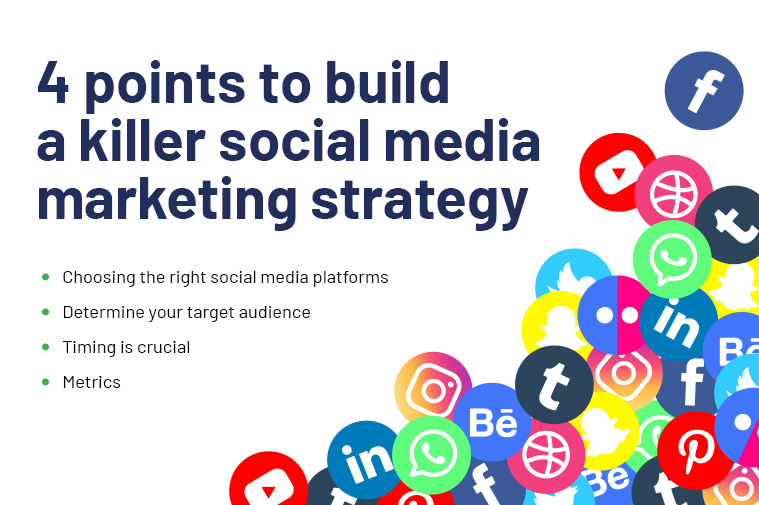Best Social Media Marketing Strategies to Grow Your Brand in 2025″ is an essential guide for brands looking to elevate their online presence in an increasingly competitive digital landscape. With the ever-evolving nature of social media, understanding effective strategies is crucial for connecting with your audience and driving engagement. This overview will delve into the innovative approaches that can propel your brand forward, ensuring relevance and resonance in 2025.
As businesses adapt to new trends and technologies, leveraging platforms like Instagram, TikTok, and Facebook becomes vital. From identifying your target audience to creating compelling content that speaks to their needs, this guide will explore actionable tactics that can transform your brand’s visibility and impact across social media channels.
In today’s fast-paced digital world, the way we communicate has evolved dramatically. With the rise of social media, instant messaging, and various online platforms, the landscape of communication has transformed from traditional methods to modern, dynamic interactions. This article aims to explore the evolution of communication, highlighting the impact of technology, social norms, and personal connections.
The roots of communication can be traced back to ancient civilizations, where humans relied on spoken language, gestures, and symbols to convey messages. As societies progressed, written language emerged, allowing for the documentation of thoughts and ideas. This foundational shift paved the way for more complex forms of communication, such as letters, books, and eventually, the printing press, which revolutionized information dissemination.
Fast forward to the 20th century, the introduction of the telephone changed the way people interacted on a monumental scale. Suddenly, distance was no longer a barrier to communication. The ability to speak to someone across the globe in real-time was a groundbreaking achievement. The invention of the internet further accelerated this evolution, giving rise to email, chat rooms, and forums where individuals could connect with others far and wide.
The emergence of social media platforms in the early 2000s brought an entirely new dimension to communication. Sites like Facebook, Twitter, and Instagram transformed how we share our lives and engage with others. Instead of just connecting with friends and family, we could now engage with entire communities, share information instantaneously, and even influence public opinion on a global scale.
The casual nature of social media has led to a more informal style of communication, where memes, emojis, and gifs have become common linguistic tools.
However, this new era of communication is not without its challenges. While social media fosters connections, it can also lead to misunderstandings and conflicts due to the lack of non-verbal cues present in face-to-face communication. Additionally, the anonymity of online interactions can sometimes lead to negative behaviors, such as cyberbullying or trolling, which can have serious consequences for individuals and communities alike.
Moreover, the rapid growth of communication technology has raised concerns about privacy and the authenticity of information. With the rise of misinformation and fake news, discerning reliable sources from misleading ones has become increasingly difficult. This highlights the importance of media literacy in navigating the modern communication landscape. Individuals need to develop critical thinking skills to assess the credibility of information they encounter online.
Despite these challenges, technology continues to enhance communication in profound ways. Video conferencing platforms like Zoom and Google Meet gained immense popularity during the COVID-19 pandemic, making remote work and virtual meetings possible. These tools have redefined the workplace and personal interactions, allowing for seamless collaboration and connection regardless of physical location. The convenience of virtual communication has led to a shift in how businesses operate, with many companies opting for hybrid work models that blend in-person and remote work.
As we navigate this ever-evolving landscape, it’s crucial to recognize the importance of maintaining genuine connections. While digital communication offers convenience, it can sometimes lack the depth and intimacy of face-to-face interactions. Striking a balance between online and offline communication is essential for fostering meaningful relationships. Making an effort to connect in person, even in our increasingly digital lives, can have a positive impact on our mental well-being and social connections.
The future of communication is undeniably exciting. Emerging technologies like artificial intelligence and virtual reality are poised to further transform how we interact. AI-driven chatbots and virtual assistants are becoming commonplace, streamlining customer service and enhancing user experiences. Meanwhile, virtual reality platforms have the potential to create immersive social experiences, allowing individuals to interact in entirely new ways from the comfort of their homes.
In this evolving environment, adaptability is key. The ability to embrace new forms of communication while maintaining the core principles of empathy and understanding will define our interactions in the years to come. As technology continues to advance, we must remain mindful of how it shapes our relationships, ensuring that our communications remain authentic and meaningful.
To foster effective communication in this digital age, individuals should practice active listening, express themselves clearly, and be open to different perspectives. Building rapport with others, whether online or offline, takes effort and intention. Acknowledging the diverse ways people communicate and being adaptable in our approaches can lead to richer, more fulfilling interactions.

In conclusion, the evolution of communication has brought both remarkable advancements and significant challenges. As we navigate this complex landscape, it’s essential to embrace the benefits of technology while remaining grounded in the values that promote meaningful connections. By fostering genuine relationships and practicing effective communication skills, we can ensure that our interactions remain enriching and impactful in a rapidly changing world.



